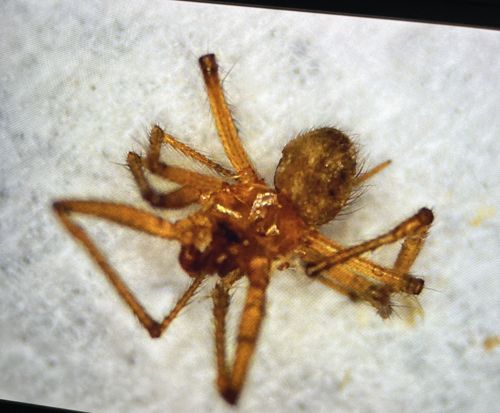Cellar Spider (or Daddy Long-legs Spider)
Scientific Name: Pholcus phalangioides
Order & Family: Order: Araneae, Family: Pholcidae
Size: Body length typically 2-10 mm; leg span can be up to 50 mm or more, giving them their common name "daddy long-legs" due to their very long, thin legs relative to their small bodies.

Natural Habitat
These spiders prefer dark, damp, and undisturbed places. Common habitats include cellars, basements, attics, crawl spaces, sheds, garages, and sometimes corners of rooms inside houses.
Diet & Feeding
Cellar spiders are predatory and feed on a variety of insects and other spiders. They are known to even prey on more dangerous spiders like black widows by wrapping them in silk and then biting them.
Behavior Patterns
Cellar spiders are known for their messy, irregular webs, often built in corners of rooms, cellars, or other undisturbed areas. They are mostly nocturnal and often hang upside down in their webs. When disturbed, they vibrate their webs rapidly, making themselves difficult for predators to see.
Risks & Benefits
Cellar spiders are largely beneficial as they prey on other insects and spiders, including nuisance pests. They are not considered medically significant to humans, and their fangs are too small to easily penetrate human skin. They pose no known risks and are considered harmless.
Identified on: 9/3/2025